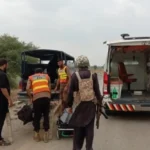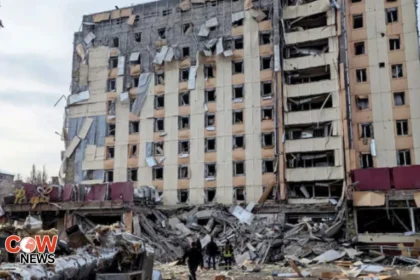On October 10, 2024, a devastating rocket attack on a coal mine in Duki, Balochistan, claimed the lives of 20 workers. The tragedy has not only shocked the nation but has also reignited debates on safety measures, the security of vulnerable labor forces, and the insurgency in the region. This article explores the details of the attack, the aftermath, and the response from local communities and officials, while addressing the larger implications of such attacks on Pakistan’s coal mining industry.
The Attack on Duki Coal Mine
The coal miners of Duki were performing their daily work at the site when, in a sudden and violent turn of events, rockets were fired directly into the mining area. The attack caused massive damage, trapping miners inside and leading to the deaths of 20 workers. In addition to the loss of lives, several others were severely injured, with some still battling for their lives in nearby hospitals.
The perpetrators of the attack remain unidentified as of yet, but suspicions point toward insurgent groups operating in the region. Balochistan, where Duki is located, has long been plagued by insurgent activity, often driven by political, economic, and ethnic grievances. Attacks like these not only serve to disrupt local industries but also aim to destabilize the region by instilling fear among the population and halting economic activity.
Protests in Duki: A Cry for Justice
In the wake of the attack, local communities erupted in protests, demanding justice for the victims and their families. The streets of Duki have seen hundreds of protesters, including family members of the miners, civil society groups, and local political leaders. Their demands are clear: greater security for coal miners, compensation for the families of the deceased, and swift action to bring the attackers to justice.
The protests reflect the growing frustration among the people of Duki and surrounding areas over the continued neglect of safety measures for workers in coal mines. In a region already facing economic hardship, mining is one of the few industries providing employment to thousands. The lack of adequate protection for these workers has resulted in repeated tragedies over the years, and this latest incident has pushed the community to its limits.
Government Response and Promises
Following the attack, the government issued statements condemning the incident and vowing to bring the culprits to justice. Balochistan’s Chief Minister, Mir Abdul Quddus Bizenjo, expressed his condolences to the families of the victims and pledged to enhance security measures for coal miners across the region. Bizenjo also ordered an immediate investigation into the attack and promised that the families of the deceased would receive compensation.
At the federal level, Prime Minister Anwaar ul Haq Kakar also condemned the attack and reassured the nation that the government would take all necessary steps to ensure such tragedies do not occur again. However, this is not the first time the government has made such promises. Over the years, coal miners in Balochistan have often found themselves working in dangerous conditions, with little to no protection from external threats. The government’s track record in providing long-term solutions to these problems has been less than satisfactory.
The Plight of Coal Miners in Balochistan
Balochistan is home to some of Pakistan’s richest coal reserves, and mining is a crucial industry for both the province and the national economy. However, it is also one of the most dangerous professions, particularly in this region. Not only are miners exposed to hazardous working conditions underground, but they also face external threats from insurgent groups, as evidenced by the Duki attack.
The coal mining industry in Balochistan has long been neglected when it comes to safety regulations and labor rights. Miners often work long hours with minimal protective gear, and safety protocols are either outdated or poorly enforced. Additionally, the remoteness of these mines makes it difficult for rescue teams to respond quickly in the event of accidents or attacks.
According to labor rights organizations, the working conditions in many of Balochistan’s coal mines are so poor that they violate basic human rights. Workers are often paid meager wages, and many of them come from marginalized communities with little access to healthcare or education. In the case of the Duki attack, it is likely that many of the deceased miners were the sole breadwinners for their families, further compounding the tragedy.
Insurgency and the Security Situation in Balochistan
The security situation in Balochistan has long been a point of concern for both provincial and federal authorities. Insurgent groups in the region, including the Balochistan Liberation Army (BLA), have carried out numerous attacks over the years, targeting not only government installations but also economic assets such as coal mines, gas pipelines, and infrastructure projects.
The motivations behind these attacks are often rooted in longstanding grievances over the distribution of resources and political power. Many Baloch nationalists feel that their province has been marginalized by the central government, and the exploitation of natural resources like coal, without corresponding benefits for the local population, has only fueled this resentment.
The Duki attack is just the latest in a long line of violent incidents in the region. While the government has made efforts to negotiate with insurgent groups in the past, the situation remains volatile. For coal miners and other laborers in Balochistan, the threat of violence is a daily reality, and many have little choice but to continue working in these dangerous conditions due to the lack of alternative employment opportunities.
The Broader Implications for Pakistan’s Economy
The attack on the Duki coal mine has broader implications for Pakistan’s economy, particularly in the energy sector. Coal is a major source of energy in the country, and Balochistan’s coal mines are critical for meeting domestic energy demands. Disruptions in coal production due to attacks or labor unrest can have ripple effects throughout the economy, leading to increased energy costs and reduced industrial output.
Additionally, the frequent attacks on coal mines and other economic assets in Balochistan raise concerns among potential investors, both domestic and international. For Pakistan to develop its energy sector and attract investment in mining and other industries, it must address the security challenges in regions like Balochistan.
Moving Forward: What Needs to Be Done?
In the aftermath of the Duki attack, there is a growing call for both immediate and long-term actions to address the vulnerabilities faced by coal miners in Balochistan. First and foremost, there must be an immediate investigation into the attack, and the perpetrators must be brought to justice. The government must also fulfill its promises of compensating the families of the victims and ensuring better security for miners in the future.
On a broader level, there is an urgent need to improve working conditions in coal mines across Pakistan. This includes enforcing safety regulations, providing adequate protective gear to miners, and ensuring that they receive fair wages and access to healthcare. The government must also work towards resolving the insurgency in Balochistan through dialogue and development initiatives that address the root causes of the conflict.
For coal miners in Balochistan, the Duki attack is a tragic reminder of the dangers they face every day. As the nation mourns the loss of 20 lives, it is crucial that this tragedy serves as a wake-up call for policymakers to take meaningful action to protect the workers who are the backbone of Pakistan’s energy sector.
#DukiRocketAttack #BalochistanCoalMine #PakistanProtests #WorkerSafety #BalochistanSecurity #PakistanNews #CoalMining #HumanRights #EnergySector #InsurgencyInBalochistan







